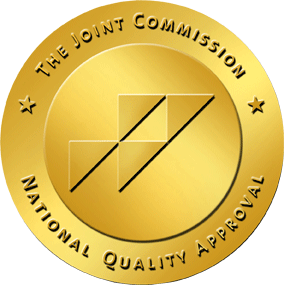Introduction to Eating DIsorders
Eating disorders are serious conditions related to persistent eating behaviors that negatively impact health, emotions, and the ability to function in important areas of life. The most common eating disorders are anorexia nervosa, bulimia nervosa, and binge-eating disorder.
Symptoms of Eating Disorders
Eating disorders involve a range of symptoms, but key signs include:
- Anorexia Nervosa: Extreme restriction of food intake, intense fear of gaining weight, and a distorted body image.
- Bulimia Nervosa: Recurrent episodes of binge eating followed by behaviors such as forced vomiting to prevent weight gain.
- Binge-Eating Disorder: Regularly eating excessive amounts of food in a specific period, feeling a lack of control during the binges.
Other symptoms common to eating disorders include:
- Preoccupation with weight, food, dieting, and body shape.
- Irregular heartbeats, dizziness, and fluctuations in weight.
- Emotional and behavioral signs such as social withdrawal, irritability, and mood swings.
Eating Disorder Diagnosis
Diagnosing eating disorders typically involves several steps:
- Medical History and Physical Exam: This includes discussing eating habits, weight history, and mental health.
- Laboratory Tests: These may include blood and urine tests to check for health issues related to eating disorders.
- Psychological Evaluation: A discussion of thoughts, feelings, and eating habits.
- Comparing Symptoms to Criteria: A healthcare provider will compare symptoms to criteria in the DSM-5.
Eating Disorder Treatment
Treatment of eating disorders generally includes a combination of psychological therapy, nutrition education, medical monitoring, and sometimes medications. It’s tailored to the individual and typically involves:
- Psychotherapy: Such as cognitive behavioral therapy or family-based therapy.
- Nutrition Education: Guidance on healthy eating and nutrition to develop regular eating patterns.
- Medications: Such as antidepressants, antipsychotics, or mood stabilizers.
- Hospitalization: This may be necessary in severe cases for medical complications, psychiatric emergencies, or severe malnutrition.
Coping & Support for Eating Disorders
Managing an eating disorder requires resilience and a proactive approach to treatment and self-care. Here are strategies to help individuals cope and find support:
Self-Acceptance and Compassion: Cultivating a kind, accepting attitude towards oneself is crucial. Recognizing that recovery is a journey that involves setbacks can foster resilience.
Mindful Eating Practices: Embracing mindful eating can help in recognizing hunger and fullness cues, thereby promoting a healthier relationship with food..
Stress Management: Learning and practicing stress reduction techniques, such as meditation or gentle yoga, can mitigate the stress that often exacerbates eating disorders.
Building a Supportive Network: Surrounding oneself with understanding friends, family, or joining support groups for individuals with eating disorders can provide a strong emotional support system.
Educational Resources: Seeking out educational materials about eating disorders can empower individuals and their loved ones with knowledge, aiding in understanding and managing the condition better.
Professional Guidance: Regular sessions with healthcare providers, including therapists and nutritionists, are crucial. They can offer personalized advice and adjust treatment plans as needed.
Healthy Lifestyle Choices: Engaging in activities that promote overall well-being, such as moderate exercise, hobbies, and adequate sleep, supports both physical and mental health.
Empowering Recovery
Remember, coping with an eating disorder is not about perfection but about making progress, one step at a time. Embracing these strategies can lead to stronger coping mechanisms and a supportive environment conducive to recovery and long-term health.
You Can Do This
Eating disorders are complex disorders that require professional help for recovery. With appropriate treatment, individuals can return to healthier eating habits and reverse many of the complications caused by these disorders.
